Joseph Koterski – Biblical Wisdom Literature
Description
Biblical Wisdom Literature , Joseph Koterski – Biblical Wisdom Literature download
Joseph Koterski – Biblical Wisdom Literature
Biblical Wisdom Literature
Delve into a rich and complex body of writings that have influenced theologians and philosophers for millennia in this course on the wisdom literature of the Bible.
LECTURE
01:Introduction to Biblical Wisdom Literature
Why do bad things happen to good people? Is there meaning in the suffering of life? As an introduction to your consideration of biblical wisdom literature, begin to ponder these crucial questions through the story of Job and preview your journey into this rich tradition.
32 min
02:The Place of Proverbs in the Bible
In the book of Proverbs, encounter one of the oldest biblical wisdom books. After considering the various literary forms in this book, take a closer look at the text by examining the story of a youth’s encounter with the Lady Wisdom and the Lady Folly.
30 min
03:Collections of Proverbs
Continue your consideration of the book of Proverbs by exploring the series of proverbs that follow the book’s opening story. This lecture also provides insights into the book’s historical context and its debt to Egyptian wisdom traditions.
31 min
04:The Poems of the Book of Proverbs
Proverbs not only offers sage advice on how to live a good life; it also contains some of the most beautiful poetry in the Bible. Here, examine two of these lovely poetic texts: an acrostic poem about the ideal spouse and a poem about the personified figure of Wisdom.
30 min
05:The Relation of Proverbs to Covenant
A key theme in biblical history is the idea of covenant: the solemn agreement made between God and his chosen people. Examine this biblical motif and see how a proper interpretation of the book of Proverbs provides a moral exhortation to live according to God’s wisdom.
30 min
06:Interlude-Some Wisdom Psalms
In this first interlude, consider the place of wisdom psalms within the larger structure of the book of Psalms. The lecture also delineates the distinctive characteristics of Hebrew poetry and suggests ways to use these psalms as part of prayerful meditation.
29 min
07:Job and the Suffering of the Innocent
Remarkably rich and complex, the book of Job offers a distinctly philosophical approach to the problem of suffering of innocent people. Begin your exploration of this wisdom story by examining its structure and considering its complex mix of drama and poetry.
30 min
08:Job-The First Cycle of Conversations
In a close analysis of the first section of the book of Job, encounter the angelic council where God allows Satan to test Job and the response to these sufferings by Job’s three friends. The scene raises a compelling question: Has Job done something to deserve his sufferings?
31 min
09:Job-Deepening the Conversation
As you continue your exploration of the first cycle of speeches, gain deeper insight into the logical error made by Job’s friends. Job’s insistence of his own innocence leads to the conclusion that there must be other reasons for suffering besides divine retribution.
29 min
10:Job-Second and Third Conversation Cycles
Does Job’s resistance to his friends’ arguments suggest moral blindness on his part or a rightful belief that his suffering is out of proportion to his actions? A close reading uncovers textual problems that suggest that the answer may be more complex than a simple dialogue can convey.
29 min
11:Job-The Wisdom Poem and the Conclusion
Here, encounter a sharp shift in style in the book of Job as the text moves from dramatic dialogue to wisdom poetry. Analyzing this poem and the laments that follow, consider how Job serves as a pattern for spiritual discernment in times of trouble.
31 min
12:Job-Elihu’s Defense of God’s Honor
The book of Job concludes with two dramatic episodes: the entrance of Elihu, a young man who upbraids Job for not admitting to God’s justice, and the dramatic appearance of God in the form of a whirlwind.
31 min
13:Job-Reflections on the Book as a Whole
In this final lecture on the book of Job, examine the dramatic conclusion of this wisdom tale and explore how the lessons it teaches about the justice of God’s ways compare with views of such modern thinkers as Gottfried Wilhelm Leibniz and C. S. Lewis.
31 min
14:Interlude-Prayer in Times of Suffering
After reflecting on the book of Job, return to Psalms to reflect on the significance of praying for compassion and wisdom in the face of suffering. The lecture also includes some practical suggestions for how to pray using the psalms.
30 min
15:Qoheleth-The Inadequacy of Human Wisdom
Often known by its Greek title as Ecclesiastes, the book of Qoheleth is one of the shortest books in the biblical wisdom tradition. In this lecture, see how this book, unlike the coherent narrative of Job, presents wide-ranging musings on a variety of topics.
33 min
16:Qoheleth-Skepticism about Easy Answers
Like Job, the author of Qoheleth faces a fundamental problem: Do a person’s virtues and vices garner their due rewards in this life? A close examination of the text reveals that there are no easy answers to this question.
30 min
17:Qoheleth-Keeping Faith during Confusion
When confronted with life’s uncertainties, how can one continue to forge ahead? This final lecture on the book of Qoheleth suggests the limits of man’s ability to comprehend the ultimate meaning of life and offers practical advice on how to persevere in faith and hope.
33 min
18:Interlude-Wisdom Psalms for Uncertainty
After considering Qoheleth’s weighty musings on the possibility of attaining wisdom, turn once again to the psalms. During this interlude, reflect on the topics of prayer and faith when reason seems to have lost its way or is blocked by uncertainty.
28 min
19:Sirach-A Traditional Approach to Wisdom
The longest of the Bible’s wisdom books, Sirach (also called Ecclesiasticus) portrays suffering as a way to test character and teach moral lessons. Here, preview the book’s structure and consider its place within the variety of traditions that have held these writings sacred.
30 min
20:Sirach on the Cultivation of Virtue
While it shares with Job and Qoheleth a sense of the need for faith in the face of uncertainties, Sirach echoes Proverbs in recommending the cultivation of virtue. This lecture explores this book’s teachings on topics such as fidelity to Torah, friendship, fear of God, sin, and vice.
30 min
21:Sirach’s Wisdom Poetry
The book of Sirach includes a wisdom poem that is distinctive for its explicit connection between wisdom and the observance of Torah. Examine the structure and content of this wisdom poem and compare it with other instances seen in Proverbs and Job and by the prophet Baruch.
33 min
22:Sirach on Divine Providence within History
The final portion of the book of Sirach includes two notable excerpts: a lovely hymn praising the glory of God in nature and a lengthy meditation on the history of salvation. As you analyze these passages, contemplate the importance of memory and gratitude in prayer.
29 min
23:The Song of Songs-Love as the Answer
The Song of Songs, also called the Canticle of Canticles, is a series of poems recording a great story of the separation and reuniting of lovers. This lecture provides a general overview of this resonant love story and discusses its historical context.
30 min
24:The Song of Songs-Levels of Meaning
What is the meaning of the beautiful verses of the Song of Songs? Is it the account of an earthly love between man and woman? Or an allegory about the relationship between God and his people? Explore the meanings both Jewish and Christian readers have found in this famous literary work.
30 min
25:Interlude-Wisdom Psalms on Perseverance
After exploring the wide range of emotions in the Song of Songs, return to the treasury of the Psalms to consider a number of texts that are especially relevant for moments when perseverance is needed to counter delay and discouragement.
32 min
26:Daniel-Wisdom through Dream Visions
Although it is often classed among the prophetic books of the Bible, the book of Daniel also offers a contemplation of wisdom through its representation of the meaning of dreams. Here, consider this book’s historical context and analyze some of Daniel’s early dream visions.
32 min
27:Daniel-God’s Providential Plan for History
The latter portions of the book of Daniel concern eschatology, or theological reflections on the end times. Conclude your consideration of this book by examining its commentary on the various stages of the world’s history as part of God’s providential plan.
32 min
28:The Wisdom of Solomon on Divine Justice
Although attributed to King Solomon, the Wisdom of Solomon is believed to have been written long after his death. In this lecture, learn about the unique circumstances of its authorship and examine how its opening section posits the choice between virtue and vice.
31 min
29:The Wisdom of Solomon on Death
In this lecture, return to the problem of suffering and explore this book’s teachings about the meaning of the death of innocents. Consider the book’s treatment of God’s covenant with mankind, as well as a theme that will gain equal importance, the idea of the immortality of the soul.
33 min
30:The Wisdom of Solomon on Prayer
Examine the extended poem in which Solomon exhorts kings of the world to cultivate wisdom in order to rise to the challenges of their office and offers a lesson on how to pray for wisdom.
30 min
31:The Wisdom of Solomon on Divine Providence
As in Sirach, the final section of the Wisdom of Solomon examines how God actively intervenes in history. Examine this theme and other distinctive elements of the book, such as its parallels with the philosophical tradition of natural law ethics and allusions to the soul’s immortality.
32 min
32:Interlude-A Wisdom Psalm on Torah
Many psalms reflect a key concern of the Bible’s wisdom literature: an exploration of God’s covenant with his chosen people as expressed in Torah. Here, contemplate the importance of prayer for conforming oneself to the covenant that God initiated.
33 min
33:Jesus as Wisdom Teacher
In Christian belief, Jesus of Nazareth is the Son of God who took on human nature for the sake of mankind’s salvation from sin and death. This lecture provides an overview of this doctrine and presents Jesus as a teacher who both continues and reinvigorates the wisdom tradition.
33 min
34:Jesus and the Wisdom Stories in the Gospels
Jesus was renowned for presenting his wisdom teachings in the form of parables: dense, often paradoxical stories that convey hidden truths. Here, focus on representative examples, including the parables of the Good Samaritan and the Prodigal Son.
33 min
35:Jesus and the Sermon on the Mount
As the paradigmatic instance of Jesus as Wisdom Teacher, the Sermon on the Mount both echoes the earlier wisdom tradition and adds new inspiration. Explore this remarkable text, giving close attention to Jesus’s famed Beatitudes as statements of traditional wisdom thought.
29 min
36:Overview of Biblical Wisdom Literature
What does “wisdom” mean? As you review the tradition, focus on three ways to view the meaning of wisdom as it is revealed throughout these writings: wisdom as divinely inspired; wisdom as derived from the natural world; and wisdom as achieved through human nature.
31 min
DETAILS
Overview
In the history of wisdom literature, no tradition matches the solace and profundity found in the teachings of the Bible. In Biblical Wisdom Literature, award-winning professor Father Joseph Koterski takes you deep inside the enlightening spiritual teachings that have inspired the world. In 36 thought-provoking lectures, explore books and works such as the book of Proverbs, the book of Job, and the Song of Songs in their historical and cultural contexts. Also, examine how the teachings in these and other timeless works can be applied to everyday problems.
About
Joseph Koterski, S.J.
As a Jesuit priest, I think there is something from this tradition that I can bring to bear, that will be of great interest to those who share my convictions, those who do not, and to those who are interested and searching.
A member of the Society of Jesus, Father Joseph Koterski is Associate Professor of Philosophy at Fordham University, where he specializes in the history of medieval philosophy and natural law ethics. Before taking his position at Fordham University, Father Koterski taught at the Center for Thomistic Studies at the University of St. Thomas in Houston. He earned his doctorate in Philosophy from St. Louis University, after receiving an H.A.B. in Classics from Xavier University. As a priest ordained in 1992, Father Koterski brings an added dimension of insight to his study of theology and biblical texts. He earned his Master of Divinity and License of Sacred Theology from the Weston School of Theology in Cambridge, Massachusetts. Father Koterski is a veteran Great Courses instructor and a respected teacher and scholar. At Fordham, he has been recognized for his teaching skills and was awarded the Dean’s Award for Outstanding Undergraduate Teaching and the Graduate Teacher of the Year Award. He serves as the editor-in-chief of the International Philosophical Quarterly and is coeditor of the Fordham University Press Series in Moral Philosophy and Moral Theology.
REVIEWS
Gatestamp
Louisville Kentucky
Lives up to title
Just getting started but I am a nerd about theology!
Father Joseph is wonderful!
Wissam
Thorough course, sincere teacher
I have always found the Wisdom Literature to be the most difficult part of the Bible to teach considering its subjectivity. The late Dr. Koterski has led me through it like my Bible school couldn’t do and he was successful in making it personal and not a conduit to pass any man-made doctrine: not only did he not promote his Jesuit discipline, he even didn’t assume you believed in the Bible’s inspiration. Yet somehow I’m a better believer and a teacher now that I have taken this course.
Jalo69
excellent
I am very disappointed that you wouldn’t give me a hard copy of the lectures. I am old and I like books to touch and feel, not computer discs. I won’t be doing any more business with you.
Commonly Asked Questions:
- Business Model Innovation: Acknowledge the reality of a legitimate enterprise! Our approach involves the coordination of a collective purchase, in which the costs are shared among the participants. We utilize this cash to acquire renowned courses from sale pages and make them accessible to individuals with restricted financial resources. Our clients appreciate the affordability and accessibility we provide, despite the authors’ concerns.
- Biblical Wisdom Literature Course
- There are no scheduled coaching calls or sessions with the author.
- Access to the author’s private Facebook group or web portal is not permitted.
- No access to the author’s private membership forum.
- There is no direct email support available from the author or their team.

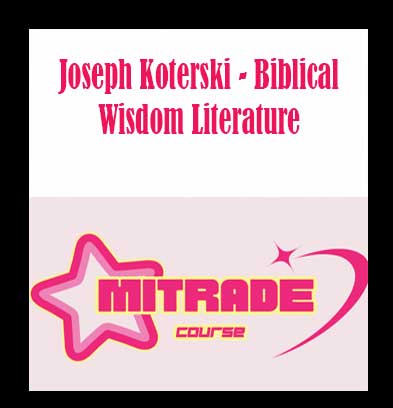
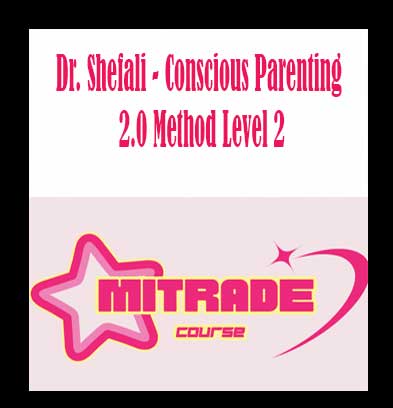
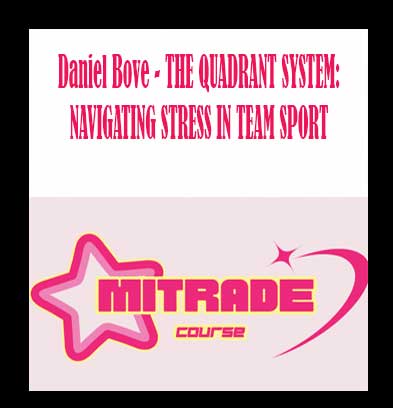
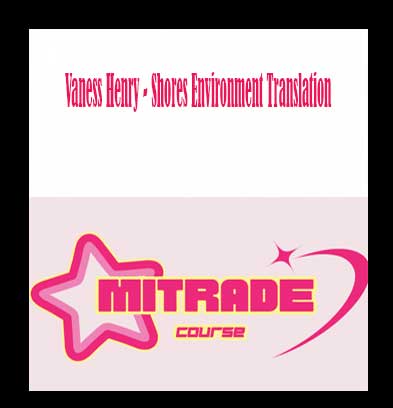

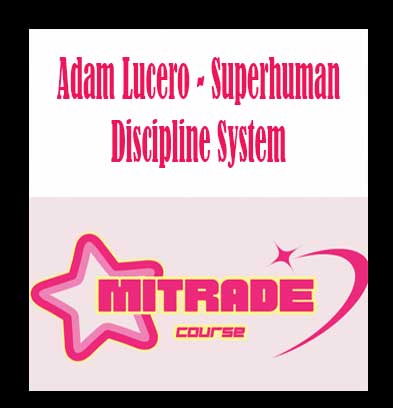
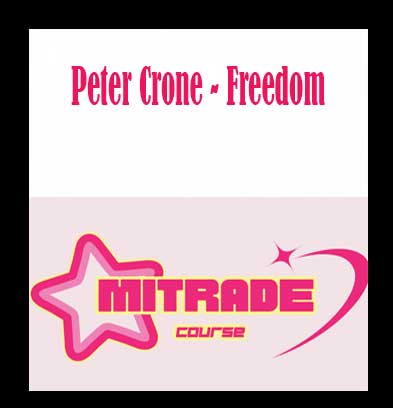

Reviews
There are no reviews yet.